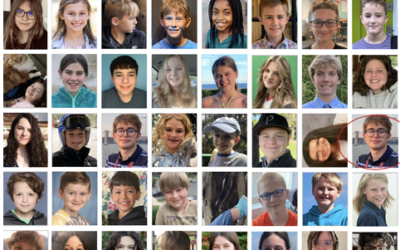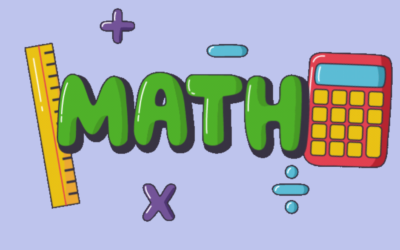It’s becoming increasingly common for dyslexic students to attend college, university and graduate school; some careers require these degrees. IS IT EASIER TO ATTEND COLLEGE? Compared to past decades, it is generally easier for dyslexic students to attend college because more colleges and universities have specifically designated academic support centers and tutors to help manage school loads successfully. Institutions of higher education aren’t allowed to discriminate against students (learn more about ADA regulations here); therefore, teachers and departments try to tread carefully once students disclose their dyslexia and request specific accommodations. That said, there are still wide differences between schools that are well-informed and support their students. See our survey results for the Best and Worst Colleges for Dyslexia FINDING THE SCHOOL THAT […]
Not Broken Movie: Interview with Gifted Filmmaker Lauren Havel
"In 2018, just after I turned thirteen, my mom signed me up for a film camp at a local private school. The moment I picked up a camera, I felt like I never wanted to put it down!" — Lauren Havel Recently, I had the chance to talk with an amazing young filmmaker,...
Dyslexic Advantage Travels to England
In a whirlwind trip, Brock met up with Dr. Helen Taylor of the University of Strathclyde and Cambridge University (Dyslexia as an Evolutionary Advantage) to speak at GCHQ (Government Communications Headquarters) - the United Kingdom's Code and Cypher School, Imperial...
English Language Learners and Dyslexia [Premium]
Question: An English language learner recently joined my dyslexia classroom. She seems to be having more difficulty progressing on our standard curriculum. Do you have any suggestions or advice? When trying to understand why a new English Language Learner (ELL or English as a Second Language) student in your class isn’t making progress with peers, individual as well as more general second language-related factors can be contributing to the discrepancy. Whenever a particular student seems to be having trouble showing progress with a curriculum, individual factors, such as their vision or hearing (including chronic ear infections, for instance) interfering with their learning should be considered. Beyond this, questions about speed of instruction, working memory, long-term memory, the number of repetitions needed to progress should be […]
Working Memory, Attention, and Learning [Premium]
“When we act on sensory inputs we call it ‘attention,’ but there’s a similar mechanism that can act on the thoughts we hold in mind.” — Timothy Buschman, Princeton University For the past 70 years, psychologists, researchers, teachers have focused intently on the implications of attention to learning, but working memory, a type of short-term memory that seems equally important — if not more significant — to general cognitive processes has received far less consideration. There are several implications for most dyslexic individuals because what many may attribute to attention or attention deficit may actually be due to activities involving working memory. IS IT INATTENTION OR WORKING MEMORY OVERLOAD? A student is struggling in math class. He is watching the teacher write on the board […]
The Karina Eide Young Writers Awards 2023
Congratulations Karina Eide Young Writer Award Winners 2023! Read the creative entries here!
Dyslexia: What About Sequencing? [Premium]
Sequential memory is a challenge for many dyslexic people – and you may be surprised how many very accomplished dyslexics have trouble with it. SEQUENCING DIFFICULTIES PRESENT MANY WAYS Parents and students may first notice difficulties memorizing sequences when they get asked to recite the alphabet or numbers up to 10. Trouble appears learning the days of the week or months of the year (harder) but some are able to compensate with music or associated mnemonics. “You mean you don’t have to sing the ABC song in order to remember which letter is in front of the other? ” – Business Executive Sequencing errors contribute to problems in reading, spelling, writing, and math, but also specific subjects like history or literature. Students with sequencing […]
Free Visual and Hands-On Math Curriculum: Bridges
Recently, I discovered a free visual and hands-on math curriculum from The Math Learning Center, a non-profit organization that grew out of a National Science Foundation project. The curriculum is for Pre-K through 5th grade and it may be helpful as an addition to some students’ math learning or possibly as a standalone. What is helpful about the curriculum is that students are taught concepts several ways – for instance place value is taught with regrouping popsicle sticks (experiential / personal or episodic memory), while paper and pencil work reinforces math learning with visual examples, and then finally pencil and paper number work. The curriculum involves games and supports multiple ways of solving problems.
Here’s an assistant superintendent providing an overview of […]Qona Rankin from the Royal College of Art: Creative [Premium]
“…instead of reading perhaps 240 words a minute, the Dyslexic brain may read 150 words a minute, but at the same time, it could be making all sorts of fascinating connections and links through dipping into other processing centers in the brain.” – Qona Rankin Qona Rankin is dyslexia specialist at the Royal College of Art (RCA), one of the premier institutions for art and design in the world. She is also dyslexic. Qona’s expertise was in three-dimension design, whether furniture, consumer products, or jewelry. After Qona earned her bachelor’s and master’s degrees, she began working part-time at a university. A visiting lecturer from another university was a dyslexia support specialist and she told the group that there were likely to be many dyslexic […]
The Fight with Robots: AI Writing (ChatGPT) Causing Trouble for Dysgraphic Students
Currently, the educational world is being rocked about advances in artificial intelligence technology that are upturning ways students are being assessed and demonstrating their knowledge. The AI Writing programs are dazzling and while there can be upsides to having this technology for free at your fingertips, there are definite problems and the challenge for teachers and schools will be to adjust to this new AI-reality without hurting students in the process. To see ChatGPT in action, check out the video below our link to sign up for a free account.
To see an example of ChatGPT in action, look at what happens when I ask the program to write a paragraph about how AI can be used for cheating. Not surprisingly, free […]Schools Missing the Boat on Dyslexia and Math [Premium]
Forty-four percent of dyslexic students also meet diagnostic criteria for math disability, according to researchers, but math rarely receives specific designations on students’ individualized education plans. What is the result? Dyslexic students with math disabilities underperform, fail, get held back, and find themselves excluded from certain academic tracks and majors (like science, technology, and engineering). What they really need though are informed teachers and school programs that understand their specific needs and teach them based on their strengths. CHALLENGES AND STRENGTHS IN MATH In a review of 50 consecutive dyslexic students seen in our clinic, the following patterns were seen in their WISCIV IQ and WIAT-III achievement scores. Our practice was unusual because we had many gifted referrals from the Silicon Valley and many students […]
Embracing the Spiky* Profile [Premium]
It can be a challenge reconciling dyslexia stories in a publication such as this because the topics may zoom from the highest highs (innovators, explorers, paradigm-shifters) to what seem to be early school frustrations – like spelling homonyms or forming letters correctly – but such is the life of the spiky profile person. That is also why if you look at what seems to be a well-organized program of remediation, and have your student signed up for it, progress may not be as orderly as hoped. A core part of the trouble trying to communicate what dyslexia may look like to those who are unfamiliar is that many existing definitions fall wide of the mark. Dyslexia is better understood as a broad learning difference – […]

![Dyslexia and College [Premium]](https://www.dyslexicadvantage.org/wp-content/uploads/2023/05/Dyslexia-and-College.jpg)


![English Language Learners and Dyslexia [Premium]](https://www.dyslexicadvantage.org/wp-content/uploads/2023/04/English-Language-Learners-and-Dyslexia-Dyslexic-Advantage-400x250.jpg)
![Working Memory, Attention, and Learning [Premium]](https://www.dyslexicadvantage.org/wp-content/uploads/2023/04/Working-Memory-Attention-and-Learning-7-e1680692445930-303x250.jpg)

![Dyslexia: What About Sequencing? [Premium]](https://www.dyslexicadvantage.org/wp-content/uploads/2023/04/Sequencing-400x250.jpg)

![Qona Rankin from the Royal College of Art: Creative [Premium]](https://www.dyslexicadvantage.org/wp-content/uploads/2023/04/Qona-Rankin-cover-e1680639793162-400x250.jpg)

![Schools Missing the Boat on Dyslexia and Math [Premium]](https://www.dyslexicadvantage.org/wp-content/uploads/2023/03/SCHOOLS-MISSING-THE-BOAT-ON-DYSLEXIA-AND-MATH-400x250.png)
![Embracing the Spiky* Profile [Premium]](https://www.dyslexicadvantage.org/wp-content/uploads/2023/03/EMBRACING-THE-SPIKY-PROFILE-DA-400x250.png)













